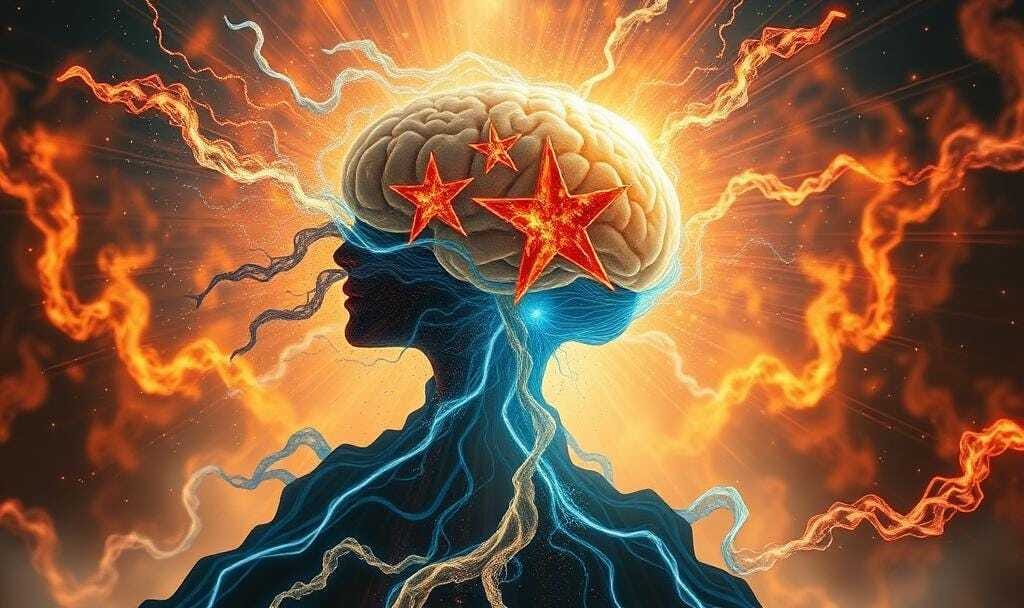Abstract: This paper delves into the profound and multifaceted power inherent in a single human mind. Moving beyond simplistic notions of individual brilliance, it explores how the cognitive, emotional, and creative capacities of one individual can initiate transformative change across personal, societal, and even global scales. Through a synthesis of psychological, sociological, and historical perspectives, this paper examines the mechanisms through which individual thought, intention, and action can precipitate significant collective impact, highlighting the interplay between individual agency and the socio-cultural fabric within which it operates.

Keywords: Individual agency, innovation, social change, cognitive power, creativity, leadership, collective intelligence, paradigm shift, psychological impact, historical influence.
1. Introduction
The adage “the power of one” often evokes images of charismatic leaders or singular geniuses who have undeniably shaped history. However, the power of a single mind extends far beyond these exceptional figures. It resides in the fundamental human capacity for thought, imagination, empathy, and action. This paper aims to unpack the intricate ways in which an individual’s inner world can ripple outwards, influencing not only their immediate environment but also contributing to broader societal and historical trajectories. We will explore how the singular development of an idea, the courage to express it, and the persistent effort to actualize it can serve as the genesis of profound collective transformations.
2. The Cognitive Engine: Ideation and Innovation
At its core, the power of one mind lies in its capacity for ideation and innovation. The human brain, a remarkable organ of immense complexity, is a crucible for generating novel concepts, questioning established norms, and envisioning alternative realities. This inherent cognitive ability forms the bedrock of progress.
2.1. The Spark of Originality: The generation of a new idea, whether scientific, artistic, philosophical, or practical, is a distinctly individual act. It can arise from observation, introspection, intuition, or a deliberate synthesis of existing knowledge. Even within collaborative environments, it is often a single mind that first conceives of a groundbreaking concept. Think of Archimedes’ “Eureka!” moment, Newton’s apple, or Einstein’s thought experiments – these are archetypal illustrations of individual cognitive breakthroughs.
2.2. The Power of Reframing: Beyond generating entirely new ideas, the power of one mind is also evident in its ability to reframe existing problems or perspectives. A single individual, through a shift in their own understanding, can offer a new lens through which a group or society can view a challenge. This can lead to novel solutions that were previously obscured by conventional thinking. The work of seminal thinkers like Copernicus challenging the geocentric model or Darwin proposing natural selection exemplifies this power of intellectual reframing.
2.3. Overcoming Cognitive Biases: While collective thinking can be powerful, it is also susceptible to groupthink and confirmation bias. A single, independent mind can act as a crucial counterpoint, challenging assumptions and preventing the solidification of flawed consensus. The individual who dares to ask “why not?” or “what if?” can be instrumental in breaking free from intellectual inertia.
3. The Emotional Catalyst: Empathy, Advocacy, and Inspiration

The power of one mind is not solely intellectual; it is deeply intertwined with emotional intelligence, empathy, and the capacity for inspiration. These qualities enable individuals to connect with others, articulate shared concerns, and mobilize collective action.
3.1. The Genesis of Empathy and Compassion: A single act of profound empathy can ignite a movement. The suffering of one individual, deeply felt and articulated by another, can resonate widely, fostering a collective desire for change. Think of the impact of narratives from individuals who have experienced injustice, poverty, or oppression, which can evoke empathy and drive social reform efforts.
3.2. The Power of Advocacy and Voice: The courage of one individual to voice their convictions, even in the face of opposition, can be extraordinarily powerful. This advocacy can champion marginalized groups, expose corruption, or promote ethical principles. Figures like Martin Luther King Jr., Nelson Mandela, and Malala Yousafzai demonstrate how a single voice, amplified by conviction and moral authority, can inspire millions to demand justice and equality.
3.3. The Force of Inspiration: Individuals with exceptional passion, vision, and resilience can inspire others to pursue ambitious goals. This inspiration can manifest in various forms, from artistic creations that stir the soul to leadership that galvanizes communities. The vision of individuals like Steve Jobs in revolutionizing personal technology or Greta Thunberg in mobilizing youth activism serves as potent examples of inspirational leadership originating from a singular individual.
4. The Agent of Action: Implementation and Impact
Ideas and emotions, while potent, require action to manifest their power. The capacity of one mind to translate thought into deed, to persevere through challenges, and to inspire others to join in can be the catalyst for monumental change.
4.1. The Entrepreneurial Spirit: The entrepreneurial spirit, often embodied by a single individual, is a driving force behind economic and technological advancement. The vision, risk-taking, and relentless execution of an entrepreneur can create new industries, generate employment, and reshape consumer landscapes. The early days of companies like Microsoft (Bill Gates) or Amazon (Jeff Bezos) highlight the transformative power of individual entrepreneurial vision.
4.2. The Role of Leadership: Effective leadership, by definition, involves the ability of one individual to guide and influence a group towards a common goal. This leadership can be formal or informal, but it consistently draws upon the leader’s ability to articulate a vision, inspire trust, and orchestrate collective effort. Whether in political, business, or social spheres, a singular leader can pivot the trajectory of an organization or movement.
4.3. The Butterfly Effect of Small Actions: The power of one mind also operates through the cumulative impact of seemingly small, individual actions. A single act of kindness, a consistent effort towards a sustainable practice, or the diligent pursuit of knowledge can have unforeseen ripple effects. The “butterfly effect” in chaos theory offers a metaphor for how minor initial changes can lead to significant long-term consequences, underscoring the potential impact of individual choices.
5. The Interplay with Collective Intelligence and Social Structures

While this paper emphasizes the power of one mind, it is crucial to acknowledge that individual influence does not operate in a vacuum. The impact of a single mind is inherently shaped by, and contributes to, the broader social and cognitive landscape.
5.1. Catalyzing Collective Intelligence: A groundbreaking idea conceived by one individual can serve as a seed that, when shared and cultivated, leads to emergent collective intelligence. The individual’s contribution provides a focal point for discussion, refinement, and amplification by others. This iterative process, where individual insight sparks collective engagement, is fundamental to scientific progress and societal innovation.
5.2. Challenging and Reshaping Social Norms: Societal norms, customs, and belief systems are often the product of collective agreement over time. However, it is invariably individuals who first question, challenge, and propose alternatives to these established norms. The power of one mind to articulate a dissenting view or propose a new paradigm can gradually, or sometimes rapidly, shift the collective consciousness and lead to fundamental societal transformation. The civil rights movement, for instance, was propelled by individuals who refused to accept discriminatory norms.
5.3. Resonance and Diffusion: The impact of an individual’s contribution is amplified when it resonates with the existing needs, aspirations, or frustrations of a population. The diffusion of an idea or innovation is facilitated by communication networks, cultural receptivity, and the willingness of others to adopt and build upon it. However, the initial spark often originates from the unique perspective and conviction of a single individual.
6. Limitations and Ethical Considerations
The power of one mind, while profound, is not without its limitations and ethical considerations.
6.1. The Double-Edged Sword: The same capacities that drive positive change can also be harnessed for destructive purposes. The brilliance and charisma of individuals like Hitler or Stalin demonstrate the devastating potential of a single mind when driven by malevolent ideologies.
6.2. The Importance of Context and Receptivity: The impact of an individual’s ideas is contingent upon the socio-historical context and the receptivity of the surrounding society. An idea that is revolutionary in one era might be commonplace in another, and its acceptance depends on prevailing cultural, economic, and political conditions.
6.3. The Risk of Hubris and Isolation: An overemphasis on individual power can sometimes lead to hubris, isolation, and an underappreciation of the collaborative effort required for sustained progress. True leadership often involves knowing when to empower others and foster collective ownership.
7.
The power of one mind is an undeniable force that has shaped the course of human history and continues to drive progress and innovation. From the genesis of revolutionary ideas and the articulation of profound emotions to the courage of individual action and leadership, the capacities residing within a single human consciousness possess the potential to transcend personal boundaries and catalyze significant collective impact. While acknowledging the essential interplay with societal structures and the potential for both positive and negative outcomes, this exploration underscores the enduring significance of individual thought, creativity, and agency in forging the future. Recognizing and nurturing this inherent power within each individual is not merely an idealistic pursuit but a pragmatic imperative for navigating the complexities and opportunities of our interconnected world. The journey of humanity is, in large part, a testament to the extraordinary potential that lies dormant, and sometimes spectacularly active, within the singular realm of the human mind.
